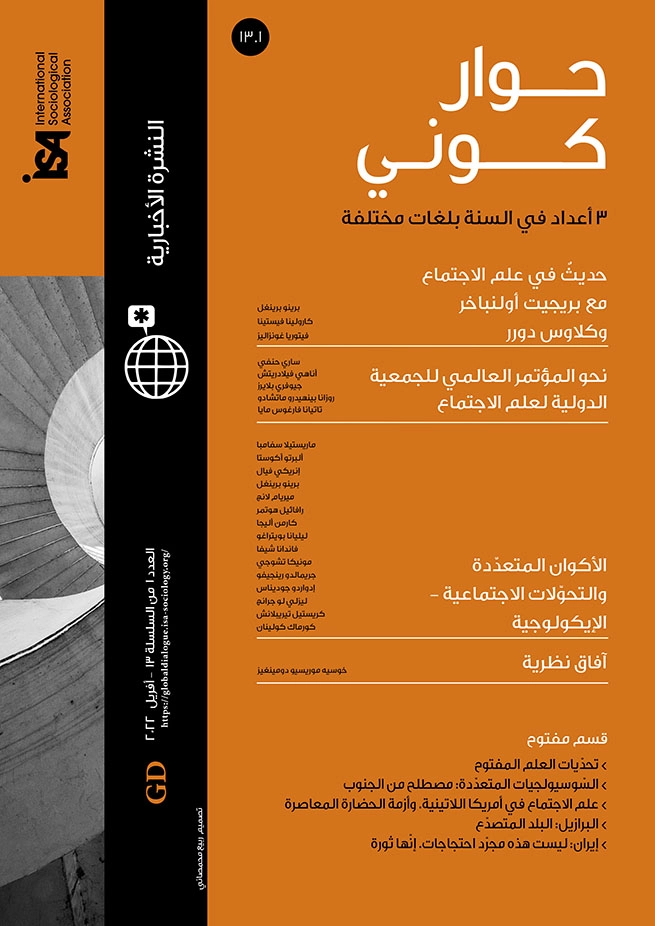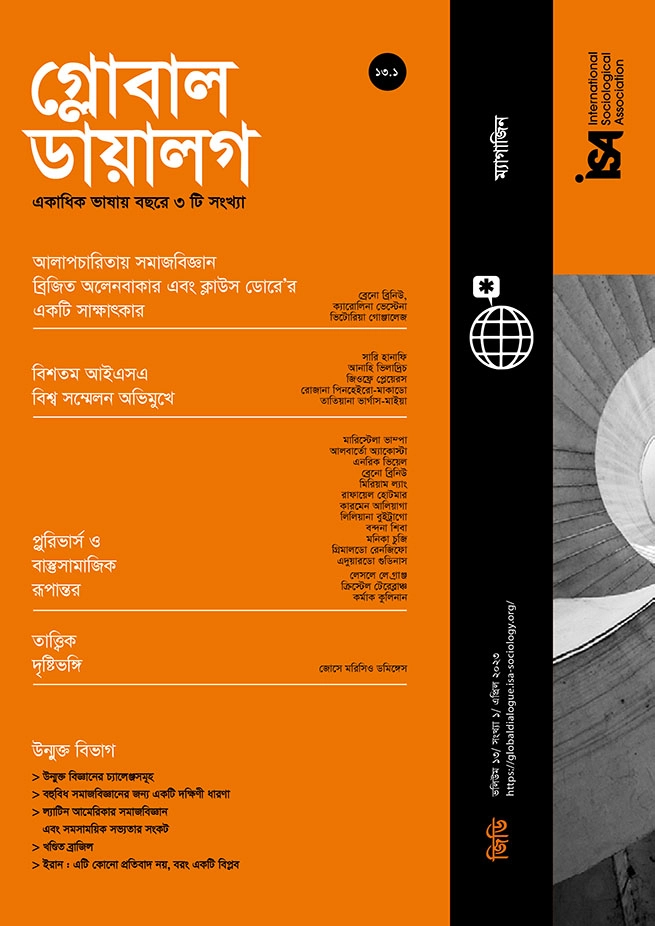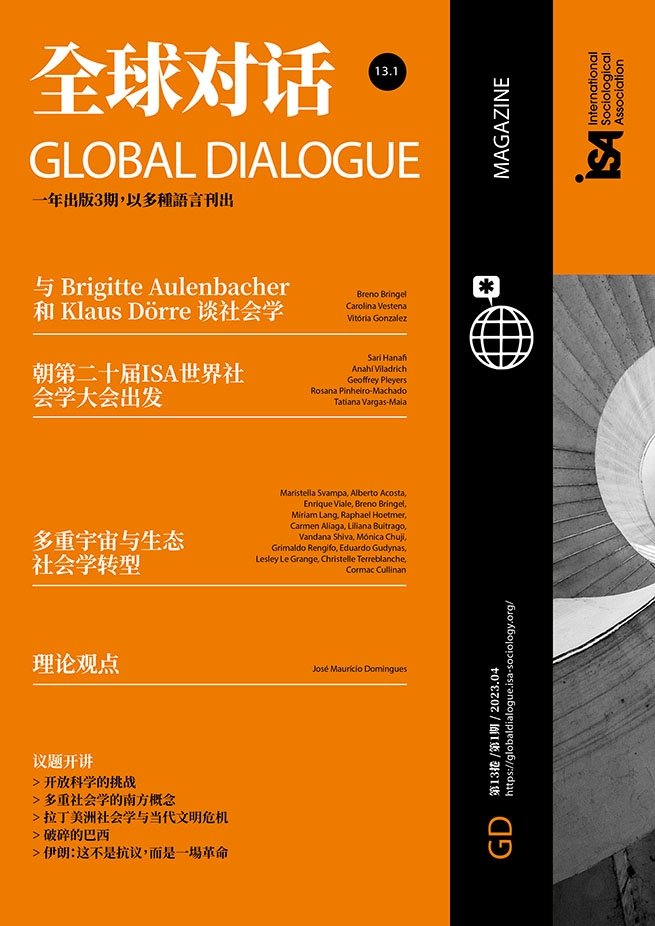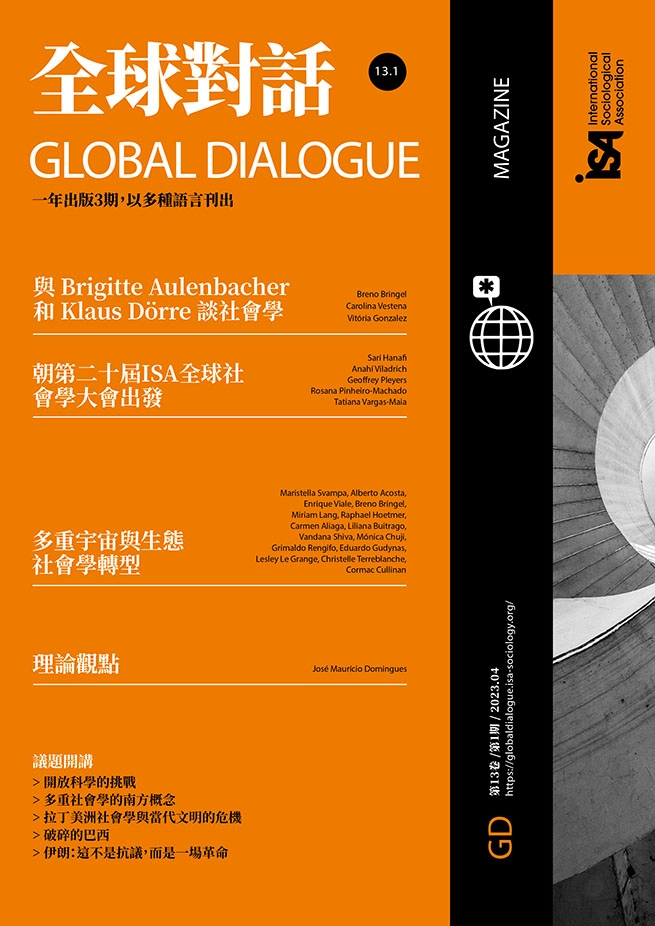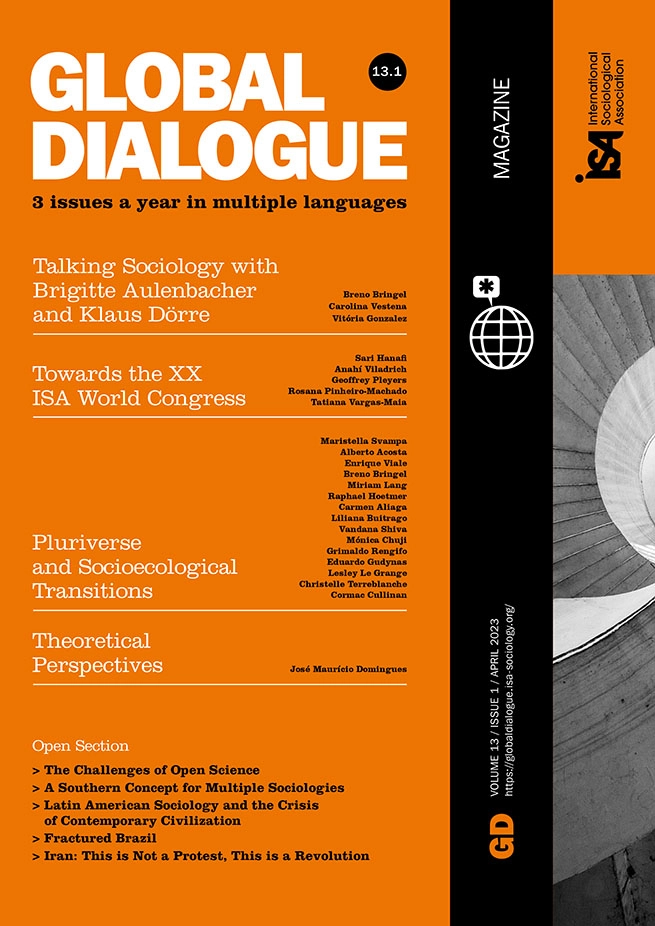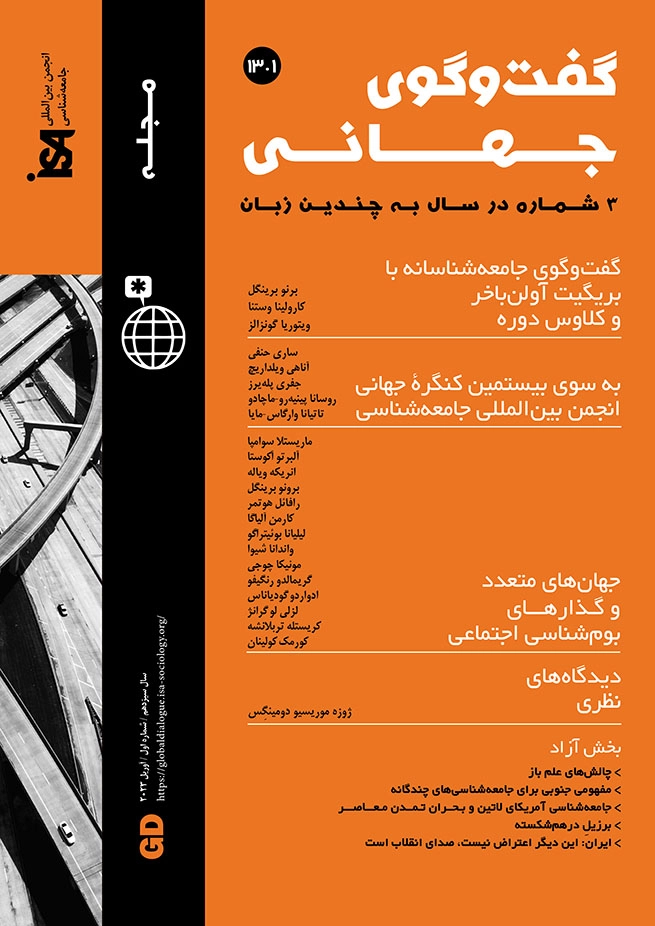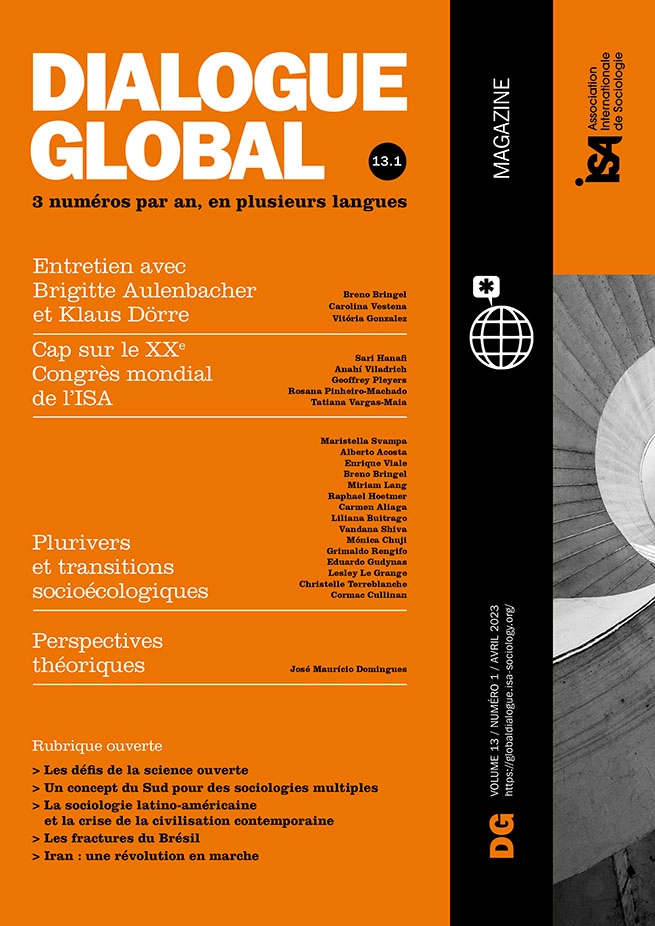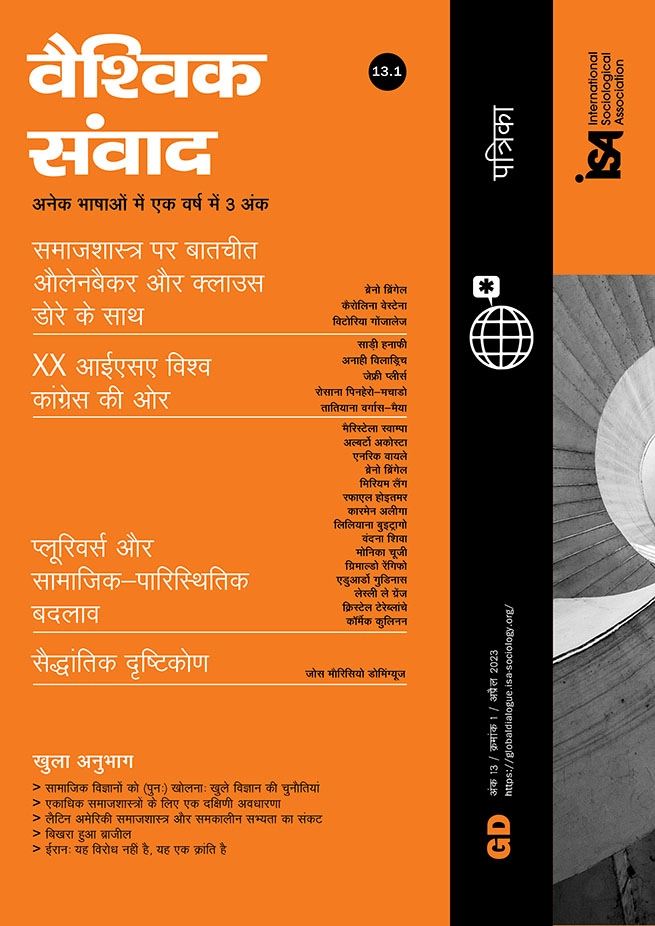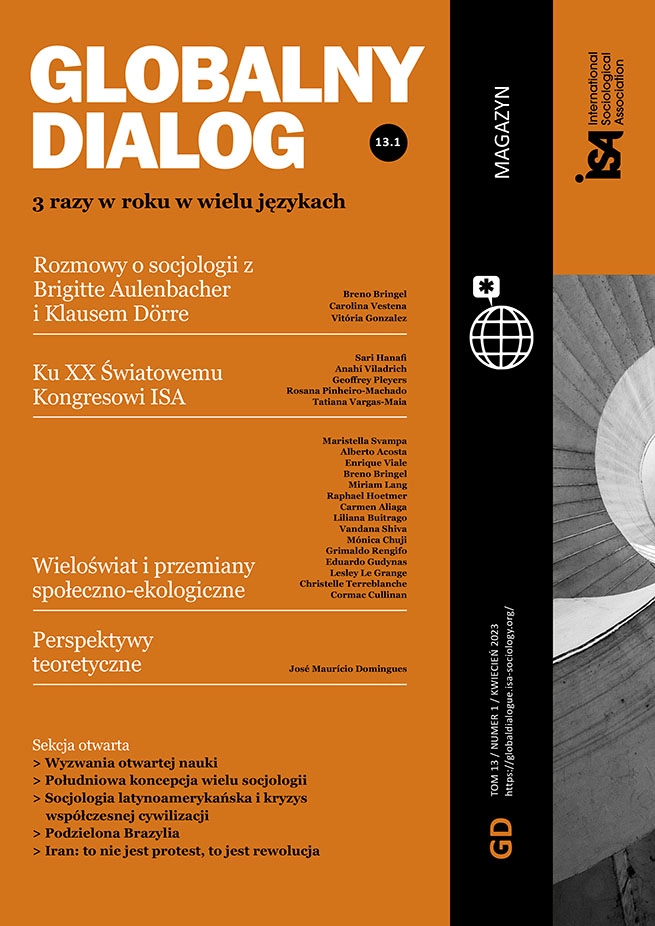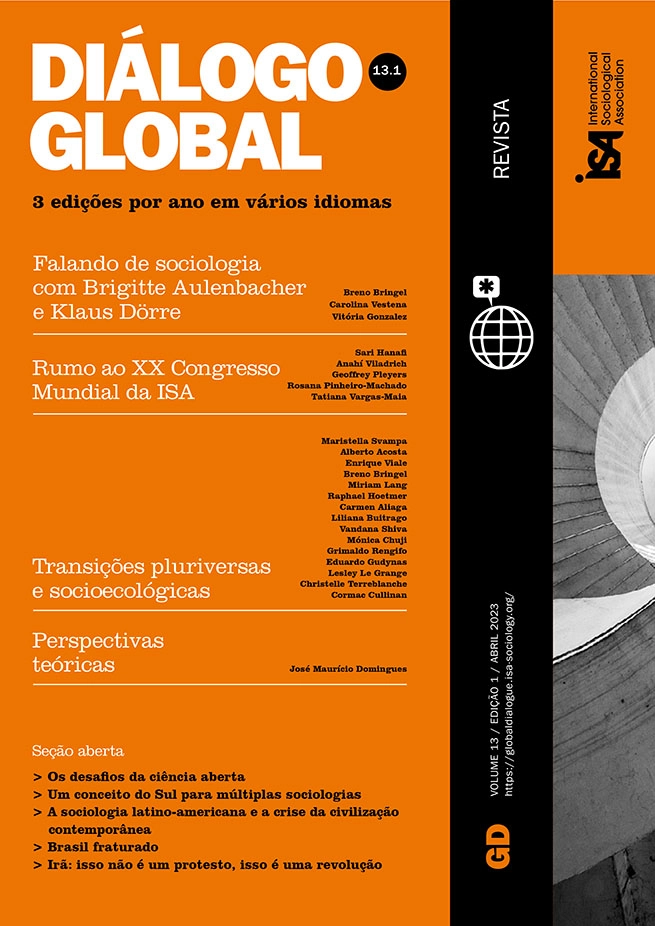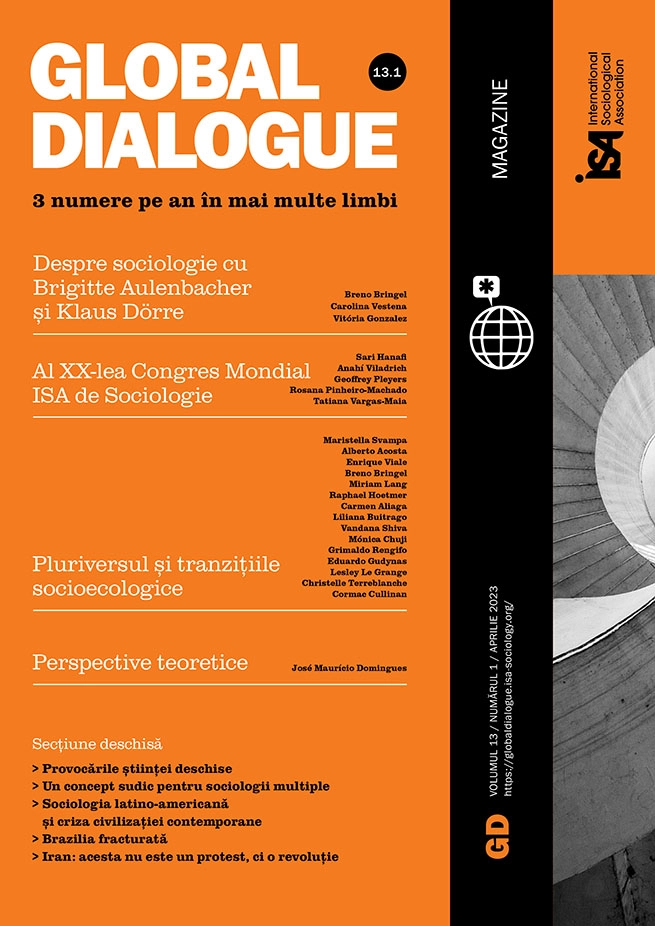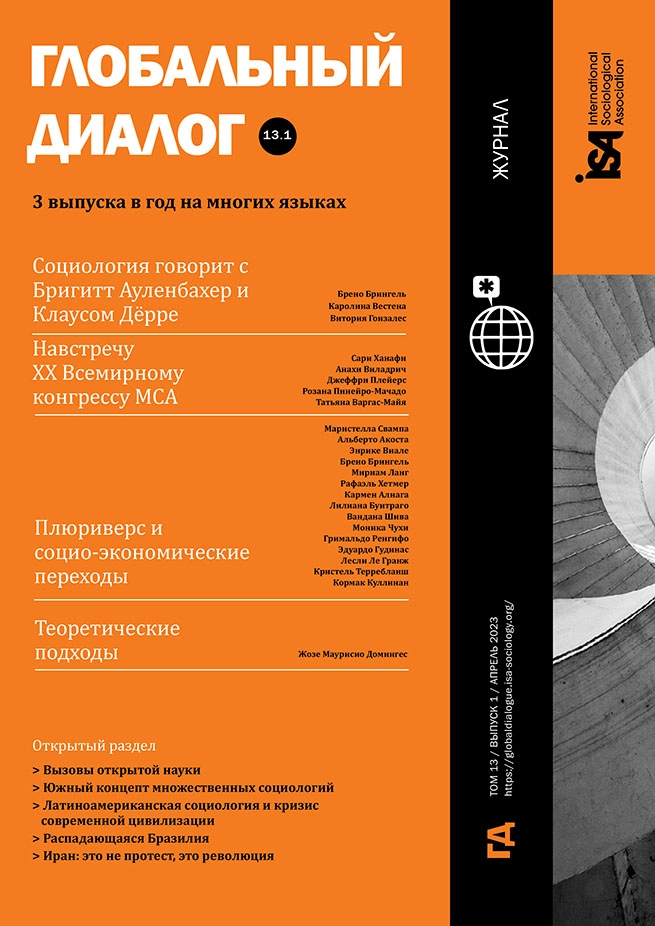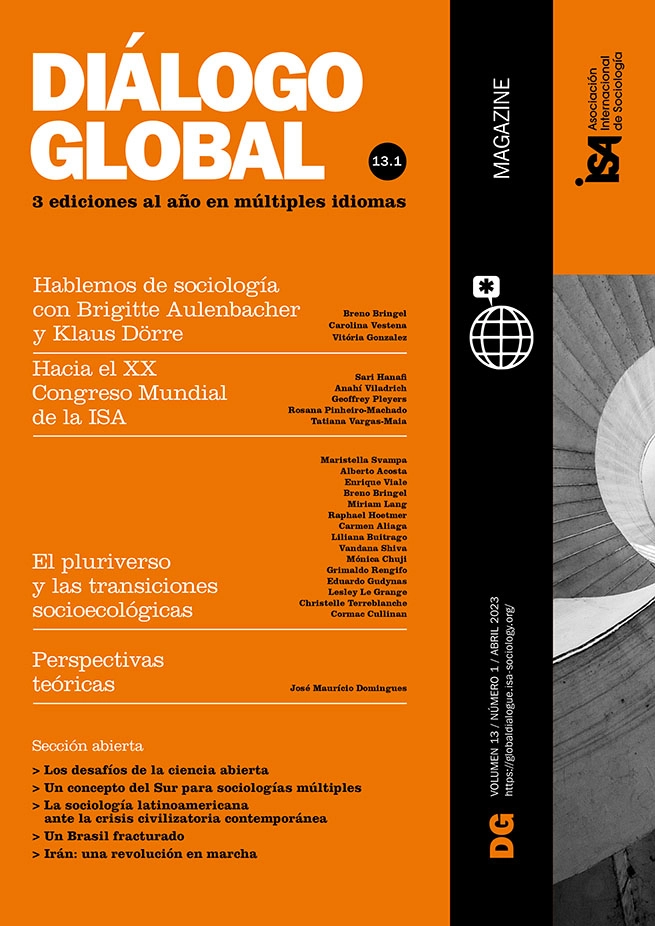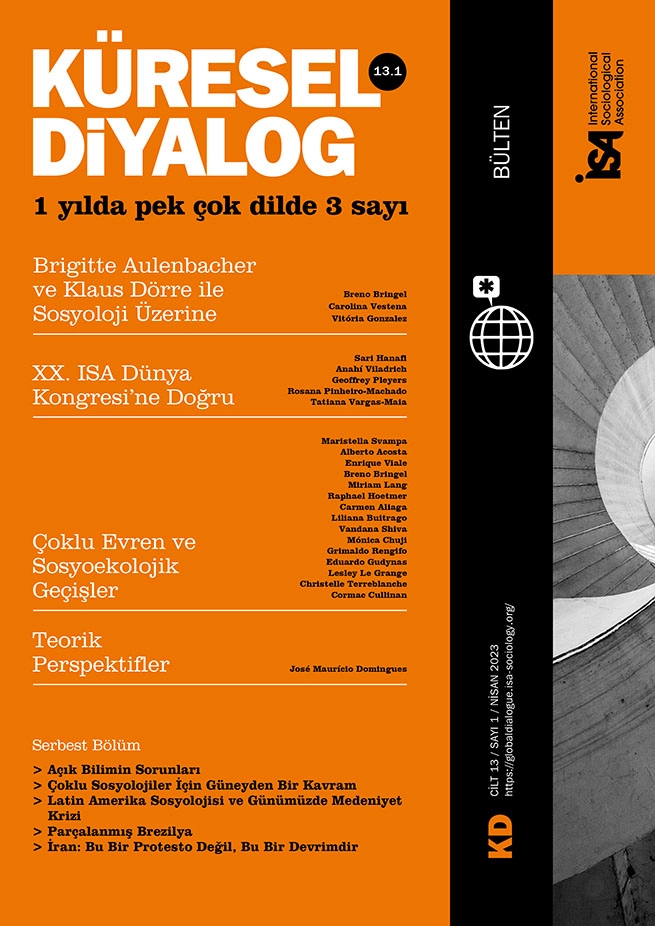After its heyday in the 1990s, global sociology has come under harsh criticism by approaches that include subaltern, postcolonial, decolonial, feminist and gender studies, and Southern theories together with other “epistemologies of the South.” Beyond their heterogeneity and divergences, these approaches converge in challenging the legitimacy of global sociology, which has been identified with Eurocentrism and the domination of Northern/Western sociologists.
The epistemic agenda propounded by these critical theories combines two steps. The first is the deconstruction of the inherent Eurocentrism on which global sociology and most of our discipline’s cognitive frames are rooted, as Sujata Patel has argued. This challenges Western-dominated forms of producing and diffusing knowledge as much as Eurocentric worldviews. Enrique Dussel has shown that coloniality and the conquest of the Americas are not a side issue of modernity but a foundational event on which modernity has been built and through which it keeps reproducing itself. Western subjectivities have constructed themselves in a relation of domination over “others.” To analyze the social actors, mechanisms, and institutions that have built, maintained, reproduced, and updated these forms of social and epistemic domination is an essential task for today’s social sciences. It includes reflexive analysis of their own past and current role in reproducing this social and epistemic system.
The second step is to pay attention to and give visibility to worldviews, experiences, and knowledge that have been “invisibilized” and denied by the modernization process. Indigenous, ecological, feminist, peasant, and minority movements have made this a significant part of their emancipatory struggles. It is also an urgent task for sociologists in the Global North and the Global South. For professional sociologists, this step notably includes revealing the contributions to our disciplines by researchers, actors, authors, and scholars that have been ignored for too long.
Social and epistemic struggles
The main ideas on which such critical perspectives build arose alongside or at the margin of academic sociology. In Latin America, the rise of the “decolonial perspective” itself is one of the most striking illustrations of the fact that most significant debates in social sciences started among social movements, particularly indigenous movements, before progressively penetrating the academic world. In the past three decades, critical actors, social movements, and scholars from the Global South and from “oppressed backgrounds” (notably feminists and minorities), have profoundly transformed the way we see our world, modernity, equity, and “progress.” Small-scale farmers, indigenous peoples, activists, and movements from the Global South have developed perspectives such as ecofeminism and the “good life” (e.g. the Sumak Kawsay perspective in Ecuador) that have deeply impacted the way we see ecology, nature (to which we belong), and ourselves. Similar processes have occurred in the Global North. The concept of “intersectionality” appeared in the struggles of the feminist and black movements, from the pen of Crenshaw, who was not a sociologist but an activist and a lawyer. Thus many of our key concepts have arisen out of social movements “from below.”
Opening up Northern epistemologies to learning, stances, and lessons from the Global South leads to recognizing social actors as producers of knowledge, which includes practical knowledge as well as theoretical perspectives, epistemologies, and worldviews (“cosmovisions”). Indeed, indigenous, peasant, or feminist movements explicitly consider the defense of alternative cosmovisions as a crucial part of the struggle for social justice. “Our struggle is political and epistemic,” said Luis Macas, at the time a leader of the Confederation of Indigenous Nationalities of Ecuador (CONAIE). Translating these struggles to academic arenas, Boaventura de Sousa Santos asserts that “there is no social justice without epistemological justice” and struggles for the “end of the cognitive empire.”
The fences surrounding academic epistemology debates among scholars have been broken. These “social and epistemic struggles” are not only our research objects, they cross our whole discipline. Epistemologies and sociology are part of the battleground of these emancipation projects and hence partly transformed by them.
Is global sociology still relevant?
Is the project of global sociology still legitimate after this intense wave of criticism? Or is “global sociology” intrinsically bound to the Eurocentric (colonial, patriarchal, and capitalist) modern project and worldview? Should sociology renounce this project to do justice to knowledge rooted in local experiences, struggles, and specific cultures? Should we focus on rebuilding sociology’s regional and national histories to foster contributions by national and regional authors and scholars who have been invisibilized?
The “decolonial turn” invites Western sociologists to renounce their habit of rapidly universalizing their research results, concepts, and vision of emancipation. It demands that we acknowledge the epistemic domination rooted in Eurocentric sociology and recognize significant theoretical contributions by scholars and actors from different regions of the world and from oppressed backgrounds to the history and relevance of our discipline. It requires that we revise the canon of our discipline and renew a “global sociology” which for too long was Western sociology (and actually only a part of Western sociology). However, the decolonial turn does not invalidate the project of global sociology. The Mexican indigenous Zapatista movement has shown that promoting “a world where there is space for many worlds” does not mean giving up any global perspective; quite the opposite.
To rebuild global sociology after (and through) the decolonial turn, criticism of Eurocentrism and the visibilization of alternative knowledge must be complemented by a third and indispensable step: intercultural dialogue. This requires researchers to acknowledge their position and be open to learning from others. The posture is at once sociological, cultural, and personal. It should be rooted in a willingness to expose oneself to the risk (and hope) of losing some of one’s certainties and learning from the encounter with the other. Under these premises, sociology becomes a collective project that combines researchers’ reflexivities in a common quest for a better understanding of our world and also the actors who transform it.
Without this call for an open and intercultural global dialogue, the renewal of critical stances and theories runs three risks: fragmentation, isolation (through difficulties in reaching out beyond the most activist fringes of movements and critical scholars), and homogenization of Western social sciences and knowledge as dominant and Southern social sciences and knowledge as emancipatory. To renew global sociology and restore its relevance requires us to “provincialize” its European roots and contributions. As Chakrabarty rightly explains, this does not mean getting rid of all Western contributions to sociology and critical theory, but considering them a relevant part of a more comprehensive global sociology that builds on roots and proposals from the different regions of the world.
After developing a radical and compelling criticism of the colonial dimension of modernity and our epoch in his masterpiece Critique of Black Reason, Achille Mbembe entitled the epilogue to the book “There is only one world.” He insists on the connectedness of humanity and on the need to develop a new cosmopolitan perspective: “Whether we want it or not, the fact remains that we all share this world […] The proclamation of difference is only one facet of a larger project – the project of a world that is coming, one whose destination is universal, a world freed from the burden of race, from resentment, and from the desire for vengeance that all racism calls into being.” Decolonizing history aims at rebuilding a common history, not only a history of the colonized people. Likewise, our aim is to rebuild a common sociology, with sociologists and actors from the Global South and from marginalized standpoints, not only for them but for all of us.
Thus the great challenge of our times is the progressive emergence of a planetary consciousness. If sociology is up to its tasks, it will contribute to this planetary consciousness. To do so, global sociology can neither remain rooted in the Western universities and canons, that presented themselves as universal, nor be limited to the criticisms of this Western Sociology. It needs to connect sociologies, as Gurminder Bhambra proposes, and from there on to rebuild a common sociology, one that is diverse but builds on common grounds that emerge from global dialogues.
The ISA as a tool for renewing global sociology
Building this renewed global sociology by fully including in better ways research, epistemologies, and scholars from the Global South and oppressed backgrounds in general sociology has been one of the primary missions of the ISA over recent decades.
The ISA is built on the conviction that an open dialogue between sociologists from different continents is “critical to addressing major sociological issues across the globe,” to take the words of Sari Hanafi and Chin-Chun Yi, who gathered the contributions of the ISA Fourth Conference of National Associations in the book Sociologies in Dialogue. ISA Research Council has set up a task force to share good practices and make concrete proposals to promote equity, diversity, and inclusion within the ISA and its Research Committees. Opening spaces to authors from the Global South has been the shared mission of ISA journals and book series. Diffusing sociological perspectives from different continents and fostering cross-fertilization among them is the raison d’être of the ISA magazine Global Dialogue. The ISA social media contribute to sharing information, analyses, and perspectives from different continents. However, even in the age of Zoom, personal encounters often remain the best setting to foster personal relationships that set the bases of a mutual understanding beyond differences in stances, arguments, and cultures. That is why world congresses and forums of sociology remain important events and why research committees combine virtual conferences with in-person meetings. Our challenge remains to build an inclusive and diverse international community of scholars able to renew global sociology. To that end, we need to democratize global sociology and access to international arenas while maintaining the importance of building social bonds rooted in personal encounters.
Acknowledging, “visibilizing” and learning from the sociology by researchers and actors from the Global South and from marginalized backgrounds is not only a matter of making sociology more democratic by meeting some diversity criteria and ensuring a fair access to the diffusion of knowledge. It is also a quest for better informed and more relevant sociology, capable of providing more complex and multi-situated analyses of the challenges facing our societies. Brazilian pedagogue Paolo Freire taught us that the perspectives of and the analyses by oppressed actors offer a better understanding of their reality and society. Contributions from feminist scholars and activists during the COVID-19 pandemic demonstrated their ability to improve the knowledge of our world and its challenges far beyond feminist causes and gender equality. Likewise, analytical, and theoretical contributions by sociologists from the Global South help us to understand the reality and challenges of that region as much as to reach a better and “more global” understanding of life and society in the Global North. The epistemologies of the South together with feminist, ecological, indigenous, and intersectional approaches are more than alternative options for sociology in the twenty-first century. They are at the core of global sociology and have profoundly modified our discipline.
Geoffrey Pleyers, Université Catholique de Louvain, Belgium, and ISA Vice-President for Research (2018-23) <Geoffrey.Pleyers@uclouvain.be> / Twitter: @GeoffreyPleyers




